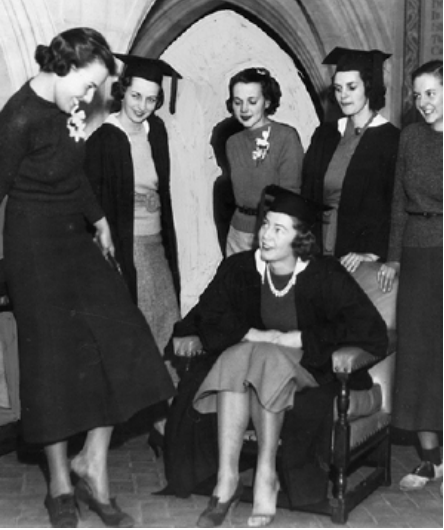Tomorrow, the Wellesley community will elect its 2016-2017 College Government Cabinet. While the ballot lists both registered candidates and reserves a space for write-ins, it will also present the option to abstain. Abstain effectively counts as a no vote against both candidates, and if enough people choose that option, the election must be run again. While a Wellesley student may choose this alternative due to their disappointment with the candidates, that is no excuse at all to abstain by checking it off on the ballot or not voting at all, seniors included.
There are several reasons why a student may choose to abstain. Students may be faithless electors, who would rather toss a vote of no confidence than one of confidence. However, the elections are well-publicized and open. If a student has no faith in the current contenders, they cannot realistically expect for another student to step up to the plate. Rather, Wellesley has the write-in candidate option for this very reason, rendering the abstain option ineffective. Surely, if a student is disappointed in the candidates, that student must know of a peer better suited to fill the position.
The student could also choose to abstain because they see themselves as ignorant about most issues or poorly informed about the candidate’s experience and platform. Given the amount of open debates, office hours and candidate crawls, there are numerous ways to be educated about college government contenders. All competitors actively spam, reach out and provide many detailed online platforms that list their ideas, hopes and dreams for Wellesley. To be ignorant is to actively ignore opportunities to learn about contenders. As political philosophers like Jason Brennan argue, voters have a moral duty to be well-informed about the candidates for which they vote. The elected cabinet will make decisions that will affect all aspects of the college. Voting also demands responsibility. By no means, should a student forgo their responsibility. Rather, students should elect candidates who are capable but also willing to improve campus life. Seniors also have an obligation to vote. While the Class of 2016 is graduating this year, this cohort of students perhaps understands Wellesley and College Government the best. Seniors should responsibly exercise their right to vote and help ensure that the succeeding legacy is competent. College Government has a substantial influence on campus.
The argument to abstain is more sensible in significantly larger democracies, convoluted by the politics of the matter. Wellesley is, however, home to only about 2,344 students. Unlike in the wider U.S. elections, the argument that a large number of voters eliminates the significance of any single student does not hold. Every vote counts at Wellesley. More so, the College Government cabinet exercises a great deal of power over the Wellesley student body. Voting for experienced, reliable candidates is crucial to a successful, practical and directed year. A strong College government will also bolster increased and active participation by the Class of 2020. Tomorrow, the Wellesley community will elect a cabinet. For a college community that prides itself on ensuring agency and a voice to all students, we, the Wellesley News Staff, hope that this same community will actively educate itself on the candidates and vote wholeheartedly.





